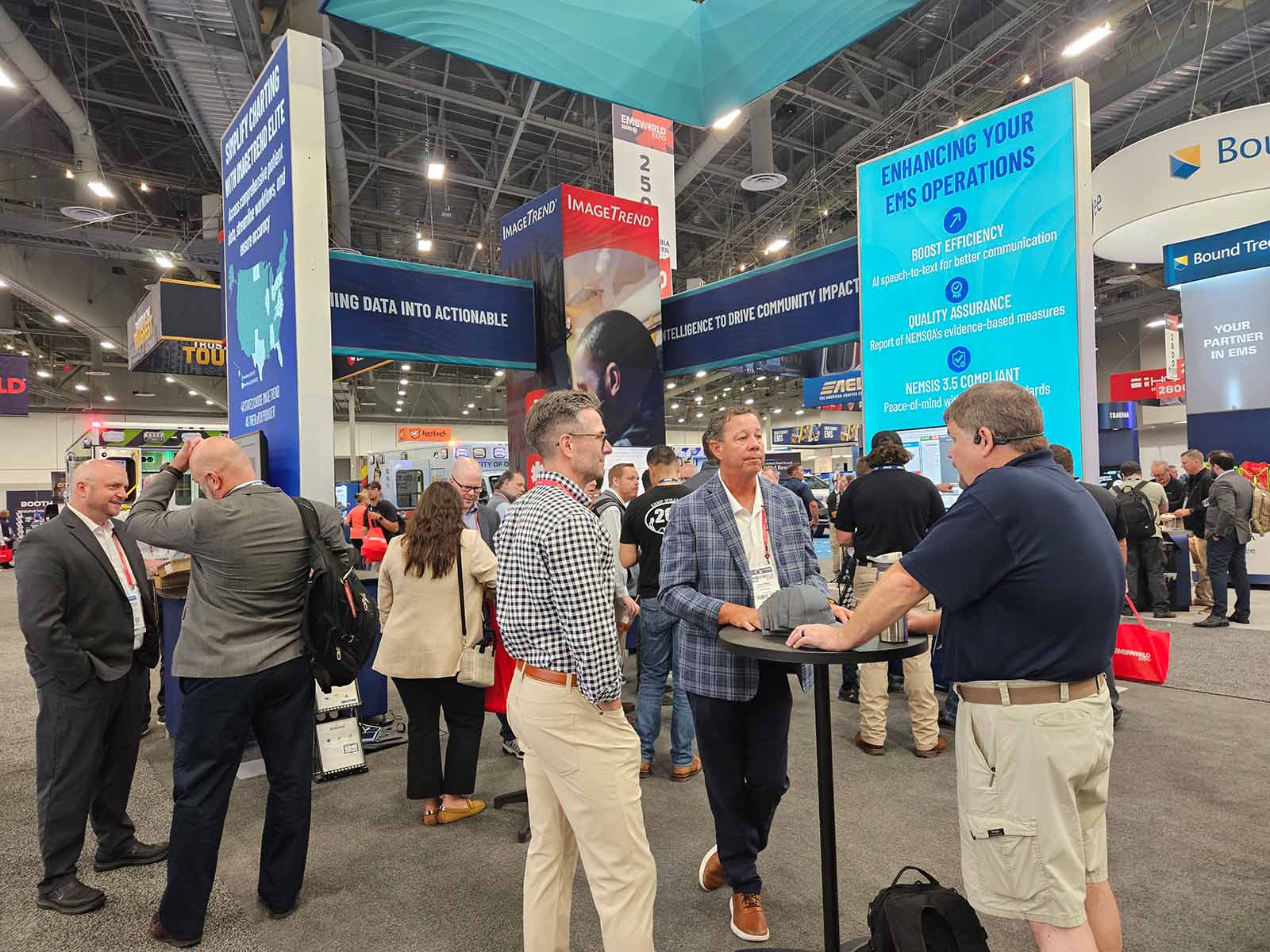EMS World Expo 2024 Recap: Enduring Impact of 9/11, Insights and Lessons for the EMS Community

On September 11th, I had the honor of attending my first EMS World Conference in Las Vegas, NV, alongside the courageous leaders of the EMS community. This event proved to be a transformative experience that left a lasting impact on all who attended.
On this date 23 years ago, the largest terror attack to ever occur in the US took the lives of more than 3,000 people, including more than 400 emergency personnel. I am not a first responder, but I was in New York City on 9/11, and the devastation and loss has had a tremendous impact on my life. Being in New York City during such a pivotal moment, surrounded by first responders, I am in awe of their courage and sacrifice. So, I was very proud to be part of this monumental event.
Keynote Presentation
One of the standout moments was the poignant keynote presentation, “The Impact on EMS & Beyond — A Conversation with FDNY EMS Leaders from Ground Zero.” The stories shared were both moving and inspiring, reminding us of the profound impact of EMS in times of crisis.
Panelists for the session include distinguished FDNY EMS leaders Dr. Glenn Asaeda, Chief Medical Director; Cesar Escobar, Assistant Chief; and John J. Peruggia, retired Chief of EMS. The discussion was moderated by Josh Hartman, a 9/11 first responder to the World Trade Center and Senior Vice President of Emergency & Mobile Medicine at HMP Global.
Sessions To Highlight
Lunch & Learn: Beyond Chart Review: Creating a Data-Driven CQI Program
Speaker: Doug Butler, Director of Strategic Development, ImageTrend
This session focused on essential aspects of Continuous Quality Improvement (CQI), such as definitions, cultural foundations, and the entire process from identification to accountability. Here are three key points to remember:
- Perception is key to CQI program initiatives. Frame the process constructively to foster a collaborative and supportive environment.
- CQI extends beyond EMS. It’s important to remember that the program may also cover fire, community health, and operations.
- Incorporate a robust CQI plan. Prioritize initiatives, gain organizational buy-in, communicate the value, and set realistic, achievable goals.
Identifying and Addressing Operational Stress in First Responders and Their Families: Evidence from Two Psychoeducation and Support Programs
Speakers: Kelly Schwartz, PHD, RPsych; Megan McElheran, PsyD
EMS personnel face a heightened risk of mental disorders due to their frequent exposure to potentially traumatic events, or operational stressors (Carleton et al., 2018). These stressors often affect not only the EMS members but also their families, with spouses typically shouldering much of the emotional and practical support (Casas & Benuto, 2021).
Various initiatives targeting operational and organizational interventions have emerged to reduce the frequency and severity of operational stress injuries (OSIs) among first responders (Di Nota et al., 2021; Bahji et al., 2022). However, many of these interventions lack evidence to support the validity and feasibility of producing measurable change in participants.
In response, two intervention programs – Before Operational Stress (BOS) and Re: Building Families (RBF) – have been developed to demonstrate their effectiveness in reducing the cognitive and behavioral impacts of OSIs.
This discussion highlighted the benefits of introducing evidence-based prevention and early intervention efforts for EMS families at the individual and departmental levels, benefiting EMS families holistically.
Cognitive Bias and Clinical Decision-Making in EMS
Speaker: Michael S. Gerber, MPH, NRP
Cognitive biases happen when we make subconscious shortcuts, like relying too heavily on one piece of information or only focusing on findings that confirm an initial assumption. And they happen more often to people who are sleep-deprived, overworked, and taking in multiple pieces of information at the same time.
In this session, Michael shared an evidence-based look at what the research tells us about the causes of cognitive bias, how to recognize them, and what steps we can take as clinicians to avoid making errors in clinical judgment that could harm our patients.
Exhibitor Hall
The exhibitor hall showcased cutting-edge technologies designed to support first responders. It was exciting to see innovations that can enhance patient care and improve operational efficiency. Connecting with various vendors and exploring their offerings was a highlight.
Overall, this conference was an amazing experience filled with inspiration, education, and connection. I look forward to attending EMS World Expo 2025 in Indianapolis, IN.
- Angel Fischer, Director of Marketing
The latest and greatest news
From ImageTrend
Check out all the newest ImageTrend has to offer
